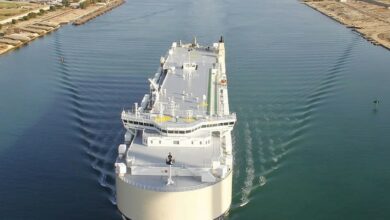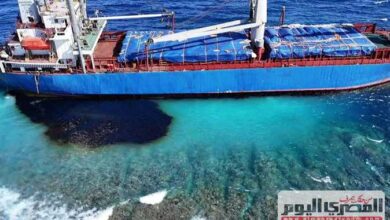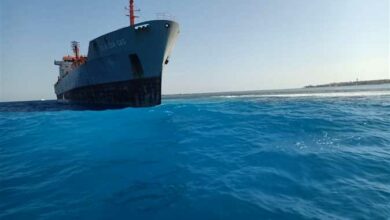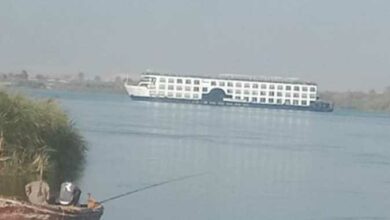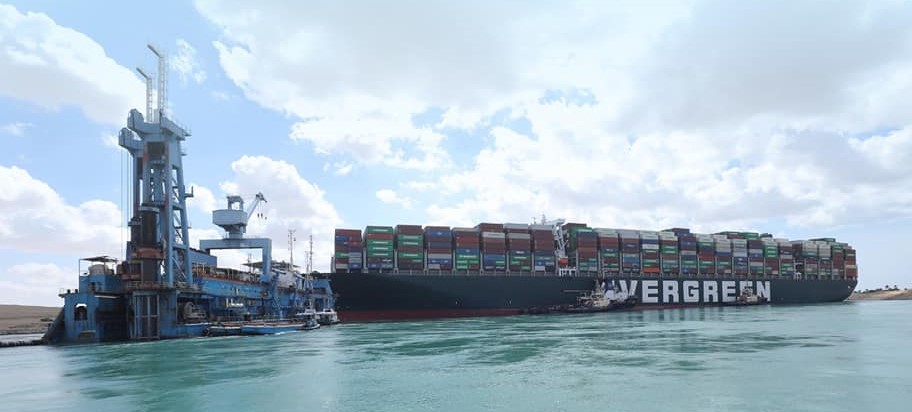
The head of the Suez Canal Authority (SCA) Osama Rabie said that roughly 321 ships in the canal are waiting to cross the vital waterway after the “Ever Given” ship blocked their path.
During a press conference, Rabie added that the accident of the stranded ship happened on Tuesday at seven am, with no injuries or deaths.
The trapped ship weighs 223,000 tons, carries about 18,000 containers, and has a length of 400 meters, he explained.
Immediately after the accident, the SCA dispatched three tugboats and quickly dealt with ships in the waterway after closing the southern lane of the Suez Canal, he added.
Rabie stressed that the authority is working day and night to resolve the crisis, and said that the condition of the tides is vital in timing the dredging. He explained that the dredgers were operating since the first hours of the ship’s grounding, and the authority has deployed five additional tugboats to deal with the situation.
On the day of the accident, wind speeds were up to 40 knots accompanied by dust storms, but Rabie assured that this was not the main cause of the incident and major accidents tend to have “composite” causes.
The “huge” size of the ship has made it difficult to handle, he said, as its length exceeds the canal’s width.
The Suez Canal Authority in Egypt earlier announced it would hold a press conference on Saturday afternoon to comment the efforts made to refloat the stranded “Ever Given” Panamanian container ship, stuck sideways in the vital trade artery.
The disruption of navigation through the Suez Canal has cost global trade about US$400 million per hour, equivalent to about $6.66 million per minute. The incident has caused the price for shipping a single container from China to Europe to rise to $8,000 – fourfold the price of last year.
According to a Bloomberg report, the ashore ship will delay the delivery of oil products worth about $10 billion which may impact oil prices in global markets.
According to BBC data based on information from navigation tracking devices, more than 160 ships are held up in front of the Suez Canal, and include 24 oil tankers and ships that carry consumer goods.
In the event that these ships decide to sail through the Cape of Good Hope as an alternate path, their route will increase by 9,650 kilometers which will cause the cost of transporting goods to increase by at least $300,000.
Authorities blame the cause of the accident on strong winds that reached up to 40 knots, which are also the culprit behind massive sandstorms across Egypt.
The canal is one of the most important trade passages in the world, and any prolonged blockage could result in massive consequences for the global supply chain.
The Turkish Minister of Transport Adil Karaismailoğlu announced on Friday that his country is ready to provide assistance with the ship.
Karaismailoğlu said that Turkey possesses a ship capable of carrying out large operations, including resurfacing.

